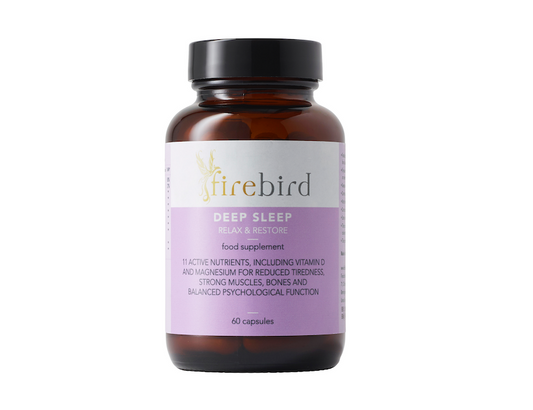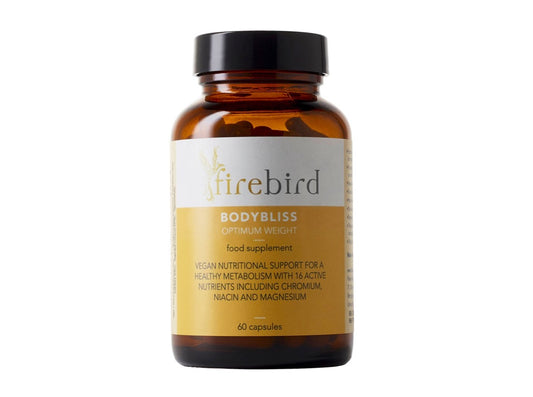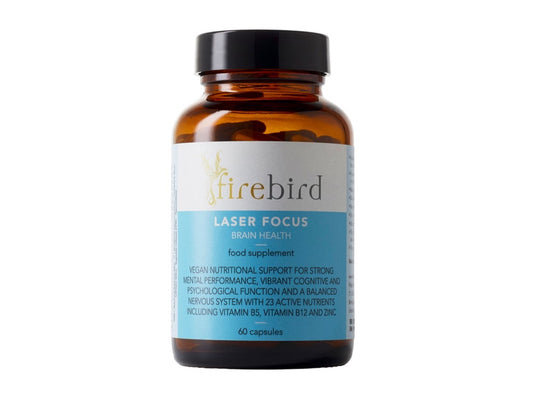
A Gratitude Journal - Your Key to Unlocking Happiness
“When you arise in the morning, think of what a precious privilege it is to be alive - to breathe, to think, to enjoy, to love.”
Marcus Aurelius
A gratitude journal is one of the most powerful tools available to generate greater happiness, health, peace and love in your life.
The practice of gratitude expands all that is good in your life, the big blessings as well as the simple pleasures and joys. When you seek out and focus on your blessings, they grow in significance, your experience of them is amplified and, by virtue of a positive feedback loop, gratitude opens the door to greater gratitude.
Do you ever wake up in the morning and pause to acknowledge that you are alive? A world is living and breathing within you and outside ready to be experienced in all its infinite facets. Your opportunity to experience this world is, however, not infinite; it is measured in years, months, weeks, days, hours and minutes. One day your time will be up and you will leave this world to make way for new life. How can you truly savour and appreciate the limited time you have been given?
Gratitude is a sure path to greater awareness, alertness, engagement, appreciation and presence in your life. It is a calling to awaken and notice the blessings all around. The experience of gratitude moment by moment for the sensations offered by the senses and the feelings generated within is the only way to savour life more.
All the time we spend reliving past events in our minds or planning the future takes us out of the present moment. Remembering past joys can bring us pleasure in the present and past lessons can help us face the moment with greater wisdom, but most other ruminations about the past steal our ability to truly live and enjoy the present. Similarly, imagining a better future and planning for it are worthwhile habits, but life and our experience of it are in the present moment. The practice of gratitude keeps us anchored in the present moment so that life does not slip through our hands without really tasting all the delicious flavours it has to offer.
Gratitude activates reward circuits in the brain and increases the release of dopamine, serotonin and oxytocin, all feel-good chemicals that enhance our perception of happiness, our sense of connection with others and our optimism. The more we express gratitude, the more we activate dopamine and the more likely we are to seek out things for which to feel grateful in the future.
The human brain generally has a negativity bias that is attuned to possible threats in our environment, which has served us well as a survival advantage, but our focus on the negative coupled with our continual bombardment with bad news can leave us feeling pessimistic and anxious.
In order to redress the balance and supercharge our reward circuits in favour of happiness, we need to actively cultivate positive feelings such that they become habitual. The daily practice of remembering and writing down three to five things for which we are grateful establishes a familiarity with the feeling of gratitude and the positive emotions it engenders to the point that we will start to activate the gratitude response more and more as a habitual response during our day.
The benefits of a daily practice of gratitude are powerful. When we take time every day to focus on the good things in our lives that we are grateful for, research has shown that it can improve our wellbeing, boost the immune system and reduce depression.
Here are seven of the most common improvements that we can experience to our quality of life as a direct result of sustaining a gratitude practice such as using a gratitude journal:
- Gratitude improves relationships:
By appreciating and acknowledging the people in our life and focusing on their good traits and behaviour as opposed to what we don’t like about them improves our social interactions and is beneficial to on-going relationships. Training ourselves through gratitude to become more empathetic and to recognise kindness in others makes us more likely to reciprocate with kind behaviour and emotional support, which engenders more positive relationships. If we concentrate on all the positive things others give us, it will encourage us to evaluate and increase our level of reciprocity in personal relationships, thus strengthening our social ties, as well as reducing feelings of resentment and envy. This process makes grateful people more likeable and more likely to receive help, friendship and appreciation from others.
- Gratitude improves sleep:
The habit of using a gratitude journal just before bedtime has been associated with better sleep. By actively reducing levels of stress and anxiety, using a gratitude journal improves sleep quality, makes it easier to fall asleep and increases sleep duration. This is all thanks to the ability of gratitude to sooth the kind of anxiety that usually has us tossing and turning in bed or waking up frequently through the night. So, for those of you who decide to use this journal just before you go to bed, lower stress levels and better sleep are happy side effects.
- Gratitude increases happiness:
Cultivating the feeling of gratitude is akin to experiencing happiness. Actively recalling the good things in our day and feeling grateful for them as opposed to ruminating on the bad will also make our memories happier. It can recast neutral or negative memories in a new, more appreciative, positive light. Gratitude also combats what is known as hedonic adaptation, the mechanism by which we start to take good things for granted. A daily habit of gratitude forces us to notice all those blessings we have become used to, to acknowledge them anew and appreciate them again. This practice ensures that we continue to feel happy about everything that is good in our lives because it forces us to remember those things and combats our negative bias to focus instead on problems and possible future dangers.
- Gratitude improves physical health:
Not only are grateful people more appreciative of their health, they are also more likely to take better care of themselves by exercising more regularly and eating a more nutritious diet. Grateful people are more likely to report higher levels of vitality and mental alertness, less physical pain and fewer medical issues. As a positive emotion, gratitude has been shown to induce the relaxation response and increase optimism; it has a beneficial impact on immune function and has been linked to longevity. It reduces stress levels and therefore counterbalances the impact of stress in the development of disease. In particular, gratitude journaling was found to reduce inflammation and improve outcomes in people who have experienced heart failure.
- Gratitude improves mental health:
Gratitude has the ability to disentangle us from toxic emotions and the incessant ruminating that often accompanies them. By focusing on the things we are grateful for, we can loosen the grip on our psyche of emotions such as envy, disappointment, resentment, regret, hatred and anger. A number of studies have established a link between gratitude and decreased depression, increased emotional resilience, improved self-esteem and lower rates of Post-Traumatic Stress Disorder. By focusing, even for a short space of time, on our many blessings rather than on our problems, we can cultivate a more positive outlook about ourselves and about the circumstances of our lives. This will reduce stress and increase optimism about the future, lifting the clouds of anxiety, loneliness and desperation. Gratitude and sustained optimism change brain chemistry; they reduce stress and inflammation, attenuate depression and, by a positive feedback loop, render positive emotions more habitual.
- Gratitude increases spirituality:
By focusing on our blessings, we take a step back from the pull of consumerism, the desire to own more stuff. Materialism makes us feel as if we haven’t got enough and that our happiness depends upon getting more material possessions. This trend correlates with reduced wellbeing. Wanting things and not getting them as well as wanting things and getting them both correlate to reduced wellbeing as the happiness we think we will attain from more stuff is grossly overestimated. Being thankful for what we have, for the experiences we enjoy in the moment, for the people in our lives, for our health, for the beauty of the natural world around us takes us out of the mind-set of striving for more and offers us a spiritual transcendental pause to connect with the good of the moment. The sense of inadequacy fostered by materialism is anathema to the sense of fullness offered by gratitude; the two cannot coexist in the same moment. By reducing the hold of materialism on us, gratitude diminishes the related emotions of envy, insecurity and frustration as we stop comparing ourselves with materialistic models of success and instead bask in the blessings of our own lives. Gratitude has also been shown to increase our tendency towards charity. If we recognise all the ways in which we are blessed, we are more likely to help others who may be less fortunate than ourselves.
- Gratitude improves our career:
By focusing on people’s skills and positive characteristics rather than on their faults and negative traits, we become more empathetic and effective both as team members and managers and we create a friendlier and more enjoyable work environment. Gratitude improves our focus, our productivity, our networking skills and our decision-making skills; we are less likely to gossip or to get distracted by office politics. As a manager, gratitude fosters employee appreciation; employees who feel appreciated and whose work and skills are recognised and acknowledged tend to like their work more and are more motivated and productive. Equally, managers who feel that their leadership, wisdom, experience and time spent mentoring employees is appreciated are more likely to enjoy their work and offer more help and guidance to their teams. Gratitude, therefore, increases job satisfaction and reduces workplace stress.
How to use a gratitude journal:
Find a time during your day, ideally every day but at least twice a week, in which you can sit down undisturbed for at least 5 minutes. Identify 3 or more things for which you are grateful from the last 24 hours. It can be anything at all, from your morning cup of coffee to a smile from a co-worker or the beauty of nature, the important thing is that you relive the experience in your mind, expand upon the positive emotions it solicited and bask for a while in the appreciation of that blessing.
A daily commitment to cultivating gratitude can change the way you experience life. The benefits accrue gradually, but after weeks of continuous practice, it becomes a habit to look out for the good things in your day, to focus on your blessings over your burdens and, subsequently, to feel happiness, serenity and optimism over pessimism, frustration and anxiety.
You will find that you are able to gradually increase the number of blessings you recall per day from 3 to 10 or more. The more you cultivate the habit of counting your blessings, the more blessings there will be to count. You will develop a bias towards noticing the good over the bad and that is one of the most important keys to happiness.
Enjoy the journey!
The Gratitude Journal is available now on Amazon
Learn more:
What makes Magnessence such a powerful support for optimum health?
To supplement or not to supplement...






